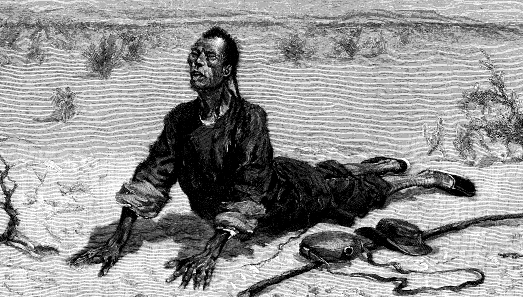As more military veterans return home and reconnect with their churches, they bring with them a great deal of baggage from the events they experienced and the honor culture that they adopted while serving our country. I outlined this honor culture in my previous post (here.)
The Christian faith rightly taught (and by extension Christ's church) provides unique and effective means to help these service members... particularly in dealing with the area of guilt and personal weakness. I have already established that the honor culture does not provide a proper outlet for guilt and shame in some circumstances. We return to my honor chart:
The problem with the way the honor culture determines guilt and shame is that it has no room for objective reality. The truth of a situation does not matter. What matters is how the collective views it. It should be said that a secular guilt culture does not deal with these issues correctly either. It is the same problem in reverse where the individual's evaluation of the situation is what determines the effective reality. While this is equally wrong, it is at least less outwardly destructive.
Where the church comes in and corrects these errors lies in its proclamation of God's Law and the Gospel of Christ. The transcendent objective truth of right and wrong pulls the sinner out of this subjective conflict of how the self relates with the cultural collective. This is a total paradigm shift where both the self and the collective take a subordinate roll in the face of what God declares to be objectively true. While personal and interpersonal relationships still play a roll, the final arbiter is what God says and the Law and Gospel provide the "ways of escape" from the impossible situations that both the guilt and honor cultures place a person in.
If we were to look at the Christian world view we would see it this way:
Here we see that the personal-culture dynamic is subordinated to the will of God and how He remedies sin. Instead of a "me versus them" situation, we see a traditional Law and Gospel approach applied to each situation. Regardless of the outcome in terms of how people relate to each other, every situation drives us to the cross where hurt and offense is remedied by faith.
This approach is sadly lacking in the emotional and spiritual treatment of military personnel. The ball dropped here can be picked up by the church.
Where the church does the most good for hurting soldiers is where it always does the most good: by proclaiming repentance and the forgiveness of sins.
In a way, this is not any different than how any sinner is handled, but I think that particular focus should be placed in actively addressing the honor culture apologetically. Where the honor culture is holding sway over a person's world view, the errors of that world view must be demonstrated to be false and the divine alternative must be presented. Where the honor culture has calcified the heart of the person into defining guilt and shame by what people think, the church should present the objective truth and teach that the very weakness that the honor culture despises is prized by God and valued by His church... because Christ is here to save and redeem sinners: poor, weak, guilty, despised, and damaged.
The honor culture structurally traps people in shame and does not provide a remedy for guilt. It trains its members to not deal with the truth as it really is. Christ's church, and His church alone, holds this remedy: the holy Law and the sweet Gospel.
This is where the modern attempts by the church to ape the culture fall down. Self help and life tips do not address the fundamental problem that is being faced by someone who is chained to their honor culture. In fact, the works righteousness of legalism makes things worse because the honor culture approaches the church the same way as it did before: hiding shame and presenting a false face that either leads to false self-justification or private torment.
Actually, the legalism that infects the church is, in itself, a kind of honor culture that places outward adherence to the law over the true reality of the Christian life. It is no remedy, but is trading one slavery for another... and it does not save.


